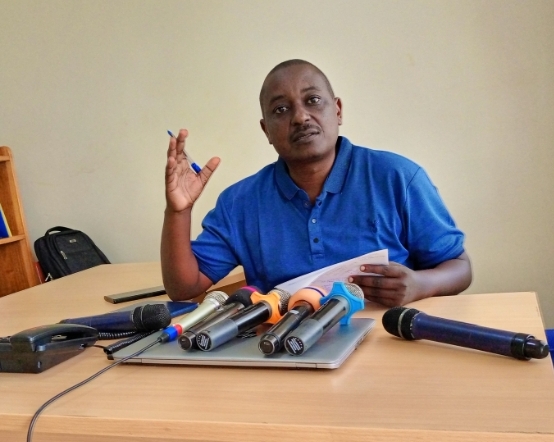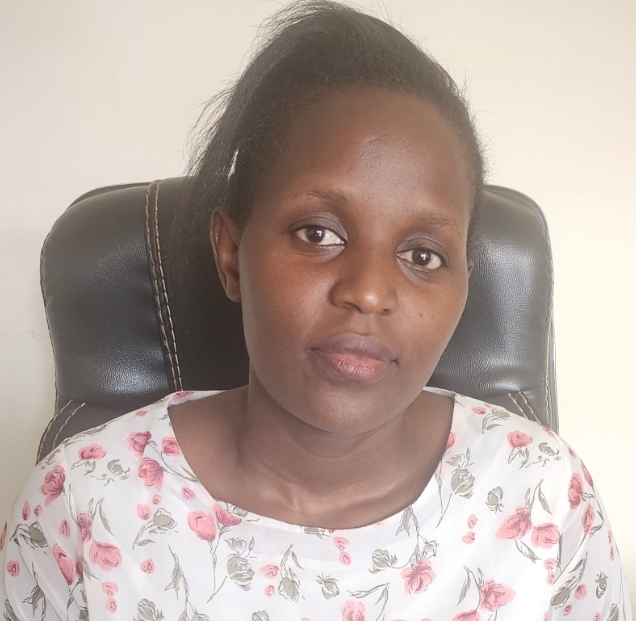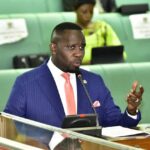African Institute for Biodiversity and Sustainability (AIBIS), a Ugandan non-governmental organisation has asked the government to adopt the teaching of indigenous African herbal medicine in the school curriculum.
While addressing the press in Kiboga town, Allan Kalangi, the Executive Director of AIBIS revealed that the Ugandan Government has of late been working on developing new curricula for different institutions of learning to make education more relevant to the prevalent development requirements.
While boardroom discussions and seminars are being dominated by how to
modernise everything.
There is less talk about the crucial elements of our traditions that helped Africans to thrive and survive for centuries. Among these elements is the African indigenous herbal medicine.
“The African Institute for Biodiversity and Sustainability (AIBIS) highly recommends teaching different varieties of African herbal medicines should be included at all levels of formal education in Uganda”, he said.
AIBIS argues that there has perhaps not been more interest in indigenous African medicinal herbs in post-
colonial Uganda than during the COVID-19 pandemic. So much was the interest and demand for herbal remedies that the Ministry of Health had to come out and give public warnings about the herbs insisting that many of them could be harmful due to a lack of information on proper prescription.
Despite that warning, the interest in herbal medicine remained high until
the pandemic waned.
During the COVID-19 pandemic, some hospitals lacked enough facilities for all suffering from COVID-19, and people were locked up in homes with no means of transport to access health facilities, all the strangeness of the disease made people turn to traditional in Uganda
medicine which had sustained Africans for centuries.
“There are many testimonies in Uganda
now by people who claim to have survived COVID-19 purely because of the herbal remedies. At the peak of the pandemic, even professionals trained in modern medicine had to turn to
indigenous herbs and that’s how Uganda’s wonder COVID-19 drug COVID-19 was developed. This alone should be enough reason to convince the Ministry of Education to introduce studies
on traditional herbal medicine”, Mr Kalangi advised.
AIBIS contends that Africa is one of the most biodiverse regions on Earth, hosting a quarter of global biodiversity. However, biodiversity rates are declining mostly due to deforestation driven by capitalistic demands.
According to a recent UN report, forests in Africa are being cut at a rate of 4 million hectares per year.
Mr Kalangi says that this is alarming and does not only make the African continent vulnerable to the vagaries of climate change but also threatens to make some of the important herbal medicinal plants extinct or rare since most of them grow in the natural forests.
He encouraged the teaching of herbal medicine which would reinvigorate the desire to conserve natural forests.
Traditionally, African children obtained knowledge of indigenous herbal medicine from older members of society. However, in the current times, children start school at a very young age and with increased urbanization, there are very limited chances for the young generation to learn about herbal medicine.
Therefore, considering the importance of this herbal medicine highlighted above, it would be important to have it in the formal education curriculum so that the young generations don’t miss out on it completely.
Culturally, herbal medicine was a common belonging to everyone. However, of late, because of the demand for this medicine and because of limited knowledge and accessibility to it, some people with commercial interests have cropped up everywhere and they are selling it in some kind of processed form. It is hard to tell how safe this already-packaged herbal medicine is.
There is also a fear that some people might patent it and make it out of reach of the majority. Teaching about herbal medicine in formal institutions of learning will therefore necessitate proper research and practice on its use and preservation.
Documentation: Traditionally, knowledge about indigenous medicines was passed on from one generation to another (from head to head) without a form of documentation.
However, as seen above people with this knowledge are giving it to the youth who are mostly in schools learning only about modern medicine.
Teaching about indigenous African medicine will necessitate documenting the different varieties of traditional medicine and how each can be administered properly.
Background.
There are over 50,000 plants in Africa said to have medicinal properties and these plants helped Africans treat different types of diseases for centuries before colonialists started establishing modern hospitals in the last half of the 19th century. The colonial government
together with the new religious faiths that they came with fought hard to discredit indigenous African medicine often associated it with witchcraft. This is mostly how it ended up not being
a field of study in formal international
institutions of learning.
![]()

























